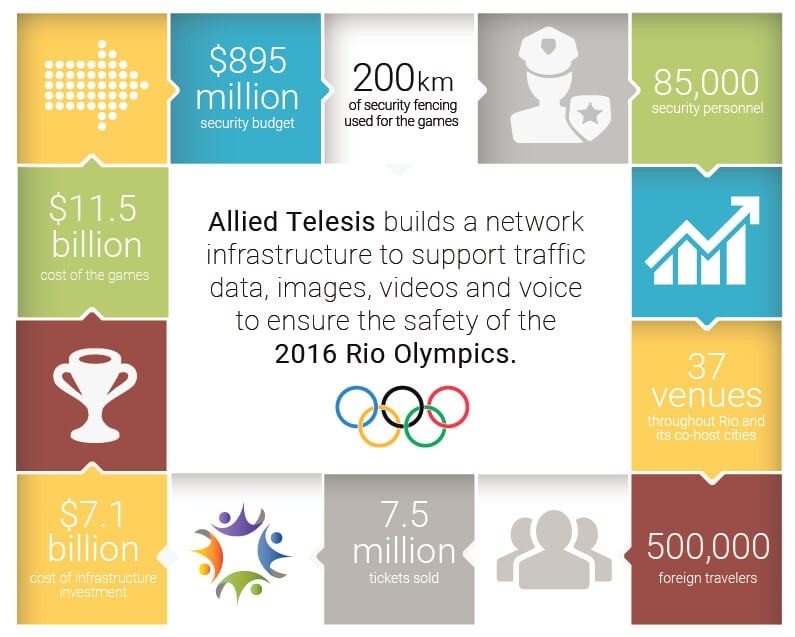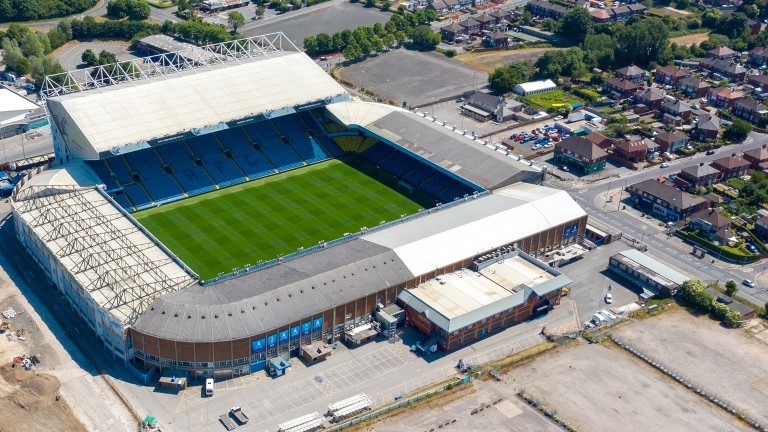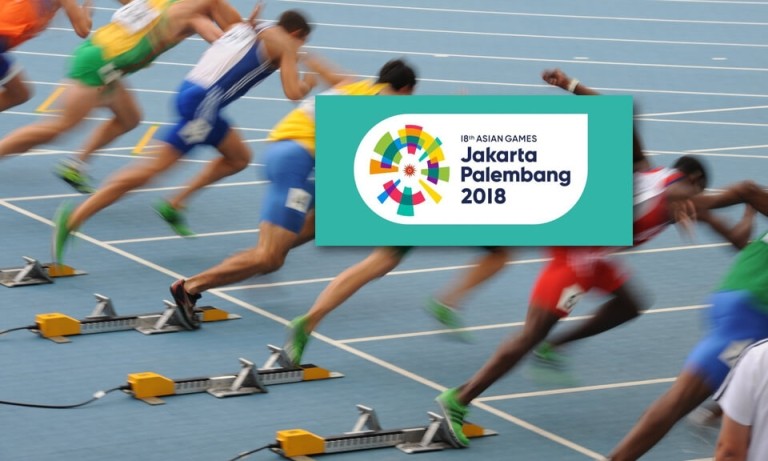
Keeping the Olympic Games Safe and Secure
Allied Telesis supports video surveillance at the Olympics with EPSRing™.
Strict Requirements and a Massive Upgrade
When Rio de Janeiro was named as host of the 2016 Olympics, problems with crime in the city received more public attention. The city’s mayor acknowledged these issues but guaranteed the safety of the event. The International Olympic Council (IOC) stood behind Rio’s capability, and a carefully planned security project began.
The network solution also had to meet the IOC’s strict requirements. The design had to take several parameters into consideration—it had to manage numerous devices effortlessly, provide total redundancy for non-stop performance, and be cost-effective.
Super Fast, Super Powerful
The network infrastructure had to support data, images, videos, and voice. Allied Telesis Ethernet Protection Switched Ring (EPSRing™) met all these requirements. The distributed network core solution required high performance and high availability, without unnecessary layers of complexity. The recovery time when links or nodes go down had to be extremely fast, and with EPSRing it is as low as 50ms, making this solution ideal for the Rio network’s converged voice, video and data services.
Core switches managed the ring topology at each venue, while edge switches were responsible for connecting and powering security cameras and other devices with Power over Ethernet Plus (PoE+).
A Network Operating at Peak Performance
The Rio 2016 Olympic Games provided the best possible environment for peak performances. Athletes enjoyed world-class facilities, including a superb village, in a compact layout for maximum convenience. Allied Telesis was proud to support the Games, providing secure and non-stop networking for this major world event.




